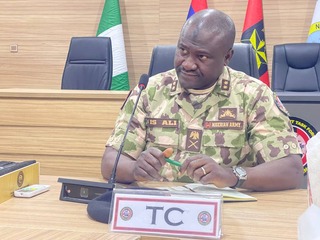Court dismisses terror suspect’s prayer for rejection of exhibit
A Federal High Court in Ibadan has dismissed the prayer of rejection of an exhibit filed by a terror suspect, Aliyu Muhammadu, for want of evidence.
Ruling on the application, Justice Ekerete Akpan held that the defendant could not provide enough evidence to justify his claim that he was not the author of the confessional statement tendered against him by the prosecution.
Akpan said that it was difficult to believe that Muhammadu might have unconsciously made the confessional statement because of the circumstances under which he made it.
He, therefore, struck out the application and admitted the confessional statement as an exhibit against the defendant.
The judge, thereafter, adjourned the suit till June 20 and June 21 for continuation of trial.
Muhammadu had earlier, through his counsel, Mr Femi Oyinloye, challenged the admissibility of the confessional statement, based on his client’s claim that he was unconscious owing to the brutality which DSS operatives subjected him to during interrogation.
Oyinloye had told the court that it might amount to miscarriage of justice if the court admitted the statement against Muhammadu due to the fact that the offence carried a capital punishment.
“I don’t know how they got the confessional statement which they lied that I wrote because I cannot write in Hausa language or any other language.
“I don’t know whether my signature is on the same confessional statement or not because I was unconscious as a result of the brutal torture the DSS operatives subjected me to.
“In fact, I never knew that I would still be alive till date. I was so weak and could not recognise anything after they had beaten me,” Muhamadu stated.
However, the Prosecution, Mr Victor Almna, apologised that he would not be able to continue with the day’s trial because of the absence of the DSS witness in court.
According to Almna, the witness had been sent to another state for a special assignment.
The judge frowned at the action and advised the prosecution to be more serious and organised concerning the matter.






























